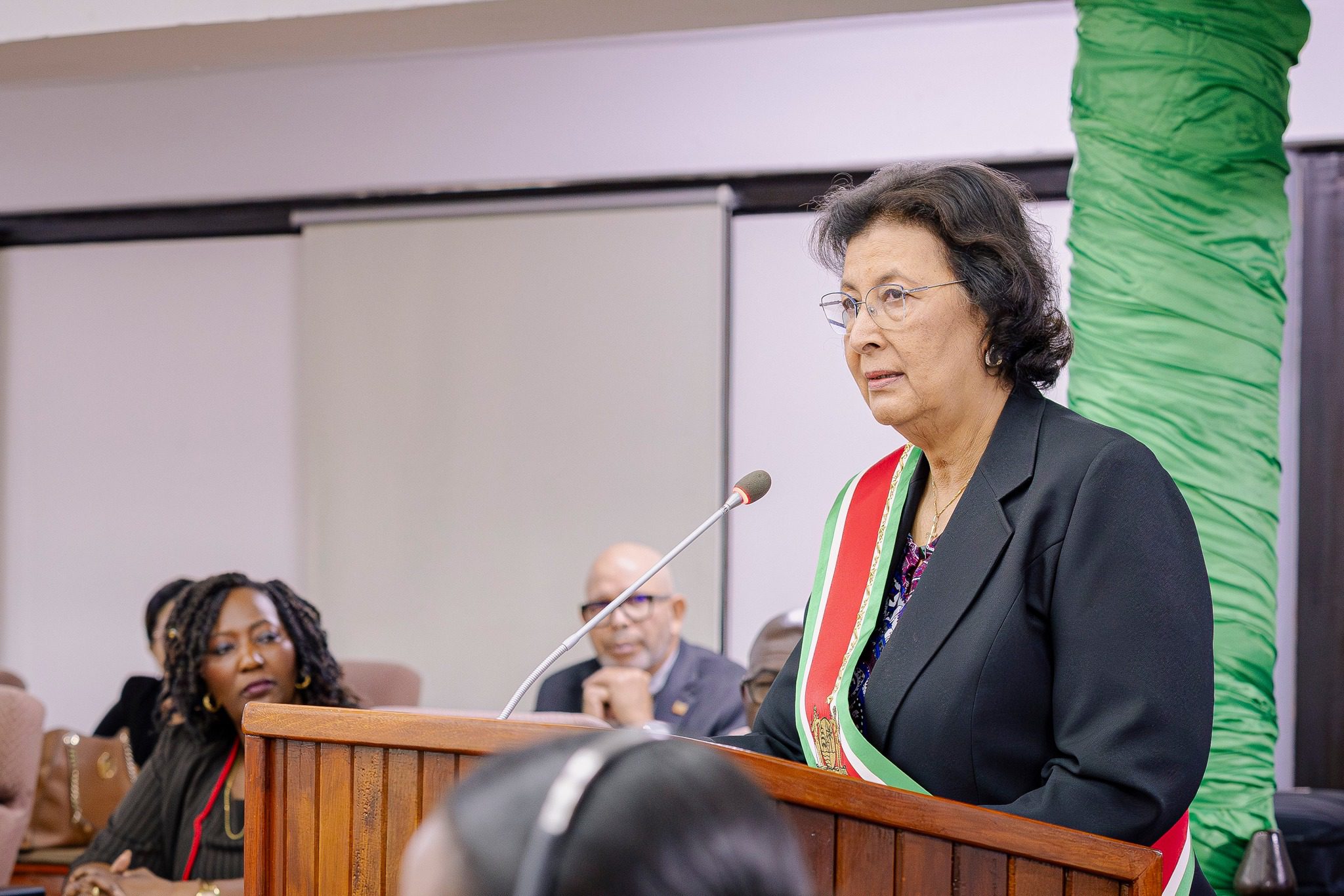PARAMARIBO, SURINAME – In her first annual address to Parliament, President Jennifer Geerlings-Simons announced that Suriname will launch a National Local Content Program in 2026 to ensure that citizens and businesses are directly engaged in the country’s emerging oil and gas industry.
Companies will be required to employ local workers and entrepreneurs in large-scale projects. Meanwhile, regional hubs in Nickerie, Commewijne, and Brokopondo will provide training, certifications, and financing to support participation in the supply chain.
Legislation on local content will be reinforced, obliging foreign companies to expand partnerships with local businesses and workers. “Every investment in Suriname must also be an investment in Surinamese people – without sham participation, without selling out… legislation is only one of the first steps. Execution is of utmost importance,” she emphasized.
The gas-to-shore project, designed to generate cheap electricity and spur industrialization, and reforms to the Savings and Stabilization Fund, were also presented as key pillars for future growth.
Alongside the new initiatives, Simons delivered a frank review of the country’s financial position. She noted that upon taking office, the government found a sharp deterioration in public accounts, with the primary balance moving from a positive 0.3% of GDP under the International Monetary Fund (IMF) program in 2024 to a deficit of -7.8% in May 2025. With the IMF program concluded and heavy debt repayments looming in 2026–2028, she said restoring fiscal discipline is urgent.
Suriname’s National Debt Chief resigns amid enhanced financial scrutiny of NDP government | OilNOW
The government will not raise taxes but instead focus on better collection of VAT and arrears, supported by a restructuring program for delinquent taxpayers that will run until the end of 2025. Simons said austerity will be applied cautiously, alongside targeted investments in vital sectors. Stabilization will center on controlling inflation, aligning expenditures with revenues, and gradually making the debt burden sustainable.
She also highlighted Suriname’s potential in the carbon credit market, noting that the country’s vast forests provide opportunities for new revenue streams that could complement oil and gas income while supporting climate goals.
“We have felt the damaging consequences of our one-sided dependence on mining. This time, we must do things differently: transparently, inclusively, and focused on sustainable growth,” Simons said.



